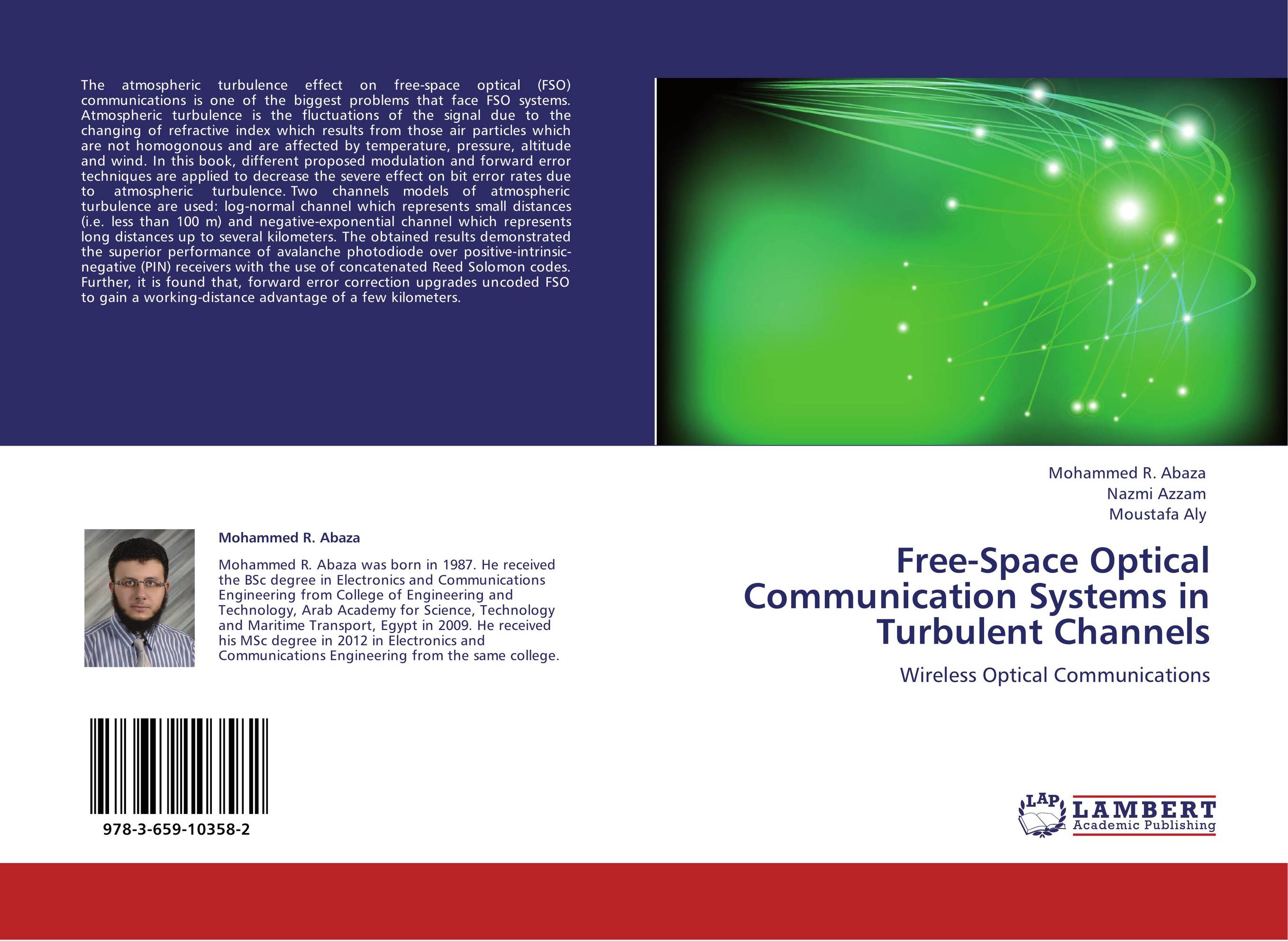| Поиск по каталогу |
|
(строгое соответствие)
|
- Профессиональная
- Научно-популярная
- Художественная
- Публицистика
- Детская
- Искусство
- Хобби, семья, дом
- Спорт
- Путеводители
- Блокноты, тетради, открытки
Free-Space Optical Communication Systems in Turbulent Channels. Wireless Optical Communications

В наличии
| Местонахождение: Алматы | Состояние экземпляра: новый |

Бумажная
версия
версия
Автор: Mohammed R. Abaza,Nazmi Azzam and Moustafa Aly
ISBN: 9783659103582
Год издания: 2012
Формат книги: 60×90/16 (145×215 мм)
Количество страниц: 84
Издательство: LAP LAMBERT Academic Publishing
Цена: 30642 тг
Положить в корзину
Позиции в рубрикаторе
Отрасли экономики:Код товара: 488859
| Способы доставки в город Алматы * комплектация (срок до отгрузки) не более 2 рабочих дней |
| Самовывоз из города Алматы (пункты самовывоза партнёра CDEK) |
| Курьерская доставка CDEK из города Москва |
| Доставка Почтой России из города Москва |
Аннотация: The atmospheric turbulence effect on free-space optical (FSO) communications is one of the biggest problems that face FSO systems. Atmospheric turbulence is the fluctuations of the signal due to the changing of refractive index which results from those air particles which are not homogonous and are affected by temperature, pressure, altitude and wind. In this book, different proposed modulation and forward error techniques are applied to decrease the severe effect on bit error rates due to atmospheric turbulence. Two channels models of atmospheric turbulence are used: log-normal channel which represents small distances (i.e. less than 100 m) and negative-exponential channel which represents long distances up to several kilometers. The obtained results demonstrated the superior performance of avalanche photodiode over positive-intrinsic-negative (PIN) receivers with the use of concatenated Reed Solomon codes. Further, it is found that, forward error correction upgrades uncoded FSO to gain a working-distance advantage of a few kilometers.
Ключевые слова: Free space optical (FSO), M-ary pulse position modulation (M-ary PPM), differential phase shift keying (DPSK), concatenated Reed-Solomon (CRS) codes, atmospheric turbulence channel, PIN photodiode, avalanche photodiode (APD).



